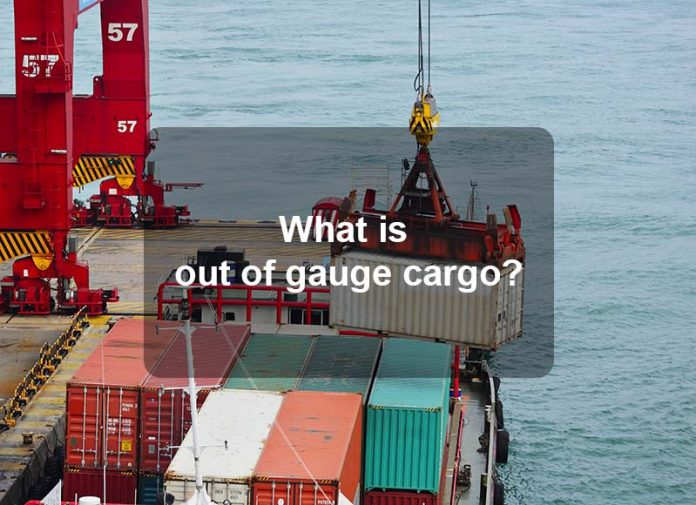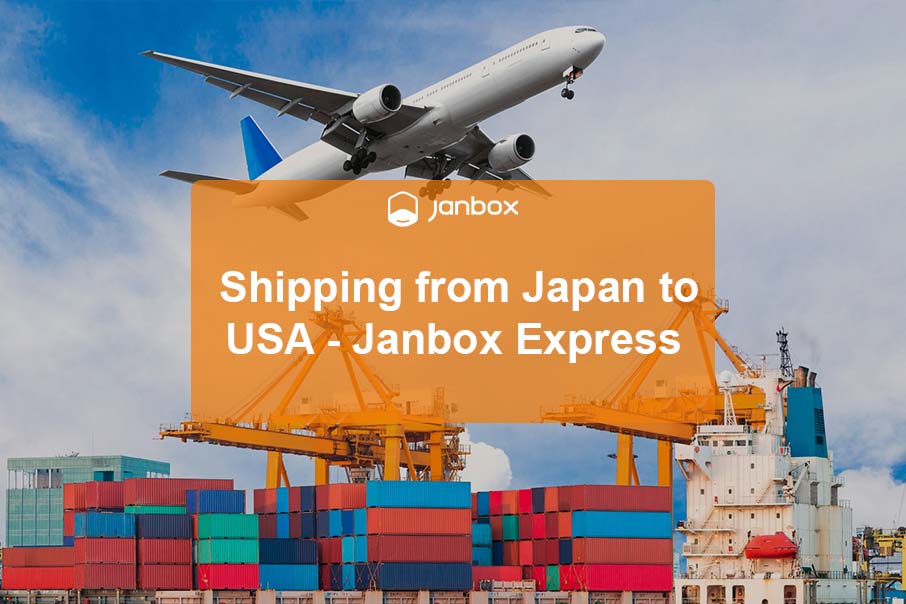What is out of gauge cargo (OOG)? This is a concept that some of you are still vaguely aware of or know but do not understand in detail, today Janbox will share some information about out of gauge cargo.
In the transportation of import and export goods, there are some types of goods that exceed the allowable weight or size, and normal containers cannot be used. Those items are called OOG goods. So what is out of gauge cargo meaning and what containers do they use to ship?
I. What is out of gauge cargo?
OOG (Out Of Gauge) cargo is the item that exceeds the allowable weight or size if normal containers are used. OOG goods are items that use special containers such as Open top or Flat racks.
The out of gauge cargo example is machinery, vehicles, specialized artwork, or mining equipment.
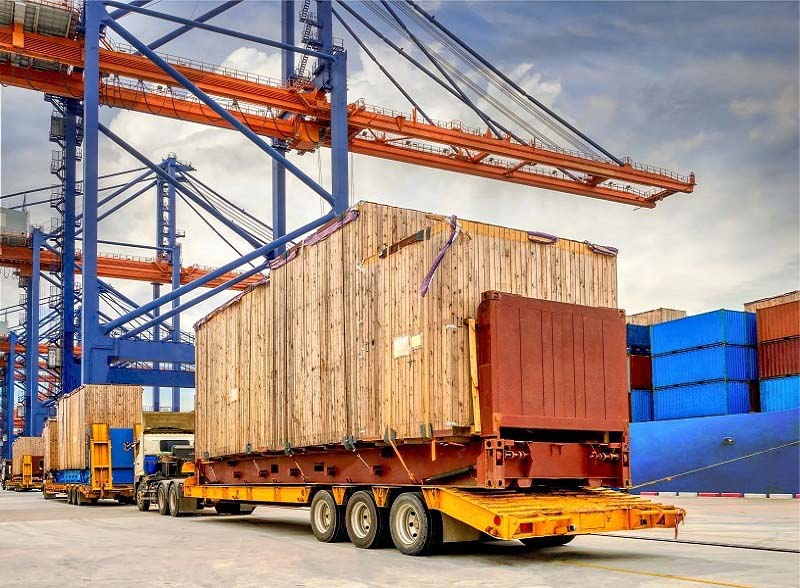
Average container size for OOG cargo
- Size of 40 feet type: Height: 2,591m, Width: 2,438m, length: 12,192m
- Size 20 feet: Outside (Length: 6,060 m, width: 2,438m, height: 2,927 m), and inside if there is a wall (width: 2,290m, length: 5,850m)
Grouping Oversized (OOG), Overloaded (OW) Containers
OOG Group 1: Container OOG (container Flatrack – FL, Platform – PF, Open Top – OT) with the following specifications:
- Length x Width x Height ≤ 15.0 m x 3.5 m x 3.5m.
- Total Container Weight, Including Case Weight (GW) 40 tons
OOG Group 2: Loadable goods in 01 FL/ PF/ OT container with dimensions or weight of goods exceeding the standard OOG Container Group 1, or having one of the following characteristics:
- Oversized, overloaded containers have high value, requiring the use of special handling equipment and tools.
- Oversized and overloaded containers require breaking codes and tying before and after loading, unloading, and transporting.
- Oversized and overloaded containers must use specialized transport equipment to deliver and receive directly at the pier.
OOG Group 3: Bulk cargo cannot be loaded into containers, shipment size and port weight can be handled by:
- Bank crane (QC): weight 50 tons, or
- Specialized cranes: confirm on a case-by-case basis.
II. Notes you should keep in mind when transporting OOG cargo
There are many types of 40 feet and 20 feet containers specific to different goods. Depending on the characteristics of each type of frozen or refrigerated goods, size and volume, the appropriate content type is selected. A few small notes when using Flat Rack to transport OOG goods need to be understood to calculate the appropriate cost in supply chain coordination.
– Choose the appropriate type of container when knowing the weight and size of the goods
– The fee will be quite high for the transportation by converted containers
– When there is a good relationship with the shipping company, it will be easier to load and unload goods, choosing the right locations on the ship.
– Coordinating with the person who specializes in loading and unloading goods on the ship so that damaged goods and unnecessary collisions will not happen, or less.
>>Read more: Everything you need to know about the consolidated shipment.
III. Solutions when transporting OOG cargo
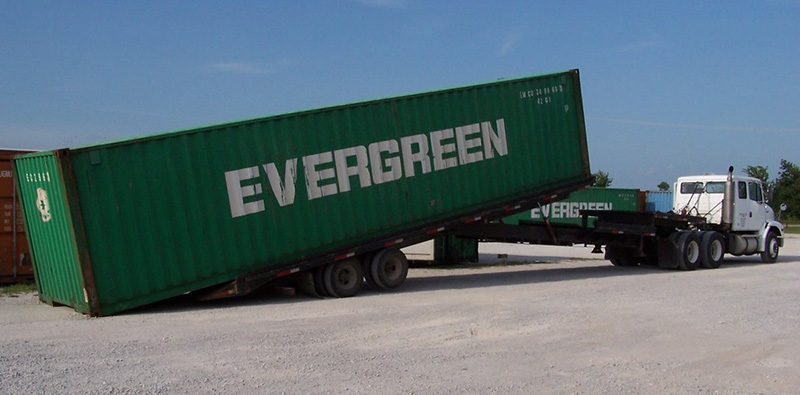
Usually, to transport items with super-heavy dimensions and weight, shippers often pack into the flat rack or open-top containers to safely transport goods during the trip.
Flat rack containers are a type of container that manufacturers provide to units such as shipping lines and shippers to carry goods of large size, bulky, and very heavyweight, exceeding the limit of normal containers.
The main feature of this type of container is that it has a rather thick steel floor for carrying super-heavy cargo. They are flexible with oversized cargo, disassembled, and securely assembled into flat rack containers.
This type of container is designed with two open walls and an open roof. Like other types of containers, flat rack containers are divided into 2 types, 20″ and 40″:
The following favorable specifications 20” flat rack container:
Outer Dimensions: Length: 6.06m, Width: 2.438m, Height: 2.927m
Weight of boxers: 2.75 Tons
Maximum allowable cargo weight: 31,158 tons
The following favorable specifications 40” flat rack container:
Outer Dimensions: Length: 12,192, Width: 2.438m, Height: 2,591m
Weight of boxers: 6.1 Tons
Maximum allowable cargo weight: 38.9 tons
Open top container: This is a type of container used by manufacturers to transport and pack oversized items that other types of containers cannot do. This type of container has an open-top design, to transport items that are oversized in height. This type of container is also divided into 2 types 20” and 40”.
IV. Additional cost
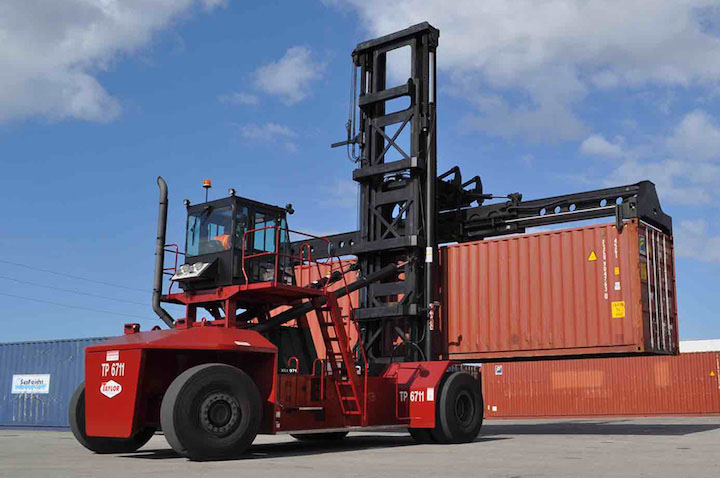
For oversized and overloaded goods at the yard:
– In case of packing/unloading goods with sizes exceeding the regulations of standard containers, forklifts must be used (from 5 tons to 20 tons): The charge for loading/unloading is agreed upon by the port with the customer but not 300% lower than the normal closing price.
– In case of packing wrong specifications, wrong load, difficult to load and unload, collect the customer according to the unit price agreed with the customer but not lower than 400% of the normal loading and unloading unit price.
– In case the port’s loading and unloading vehicles cannot perform, they must hire an outside crane, and collect the customer according to the unit price agreed with the customer equal to the normal loading and unloading unit price plus the crane rental unit of the satellite unit, but must not be lower than 400% of the normal loading and unloading unit price.
However, this service fee depends on each port and will be regulated differently, so you need to learn carefully about this surcharge to have the best preparation.
>>> Read more: Shipping from Japan to USA – Janbox Express
Conclusion
It is not easy to transport such large volumes of goods, so if you find it difficult to transport you can find service providers to enjoy the following benefits:
– Reasonable rates
– Professional staff
– Save time
– Safety – Responsibility – Absolute prestige
– Guarantee letter to protect goods for partners
Choosing a company with transportation services for these items is also quite important, ensuring that the time and costs are optimized, especially for professional, reputable, and experienced companies. years in this field.
In this article, Janbox gave a brief overview of out-of-gauge cargo. Thereby, hopefully helping readers get more information about imports and export. If you want to know more information about imports and export, you can follow the article on Janbox’s page every day.
Website: https://janbox.com
Email: [email protected]
Facebook: https://www.facebook.com/janbox.com.en

